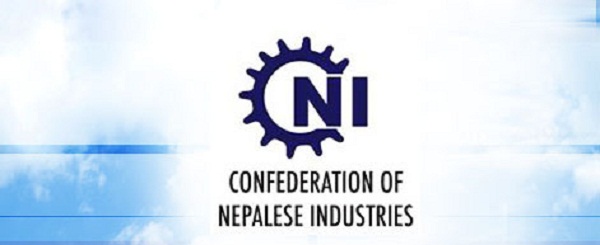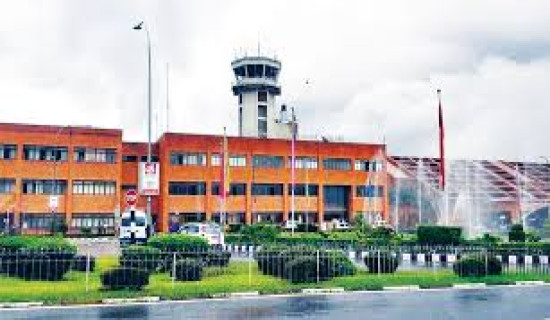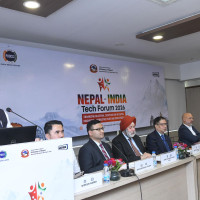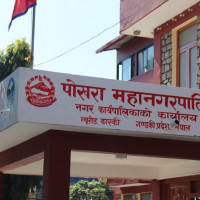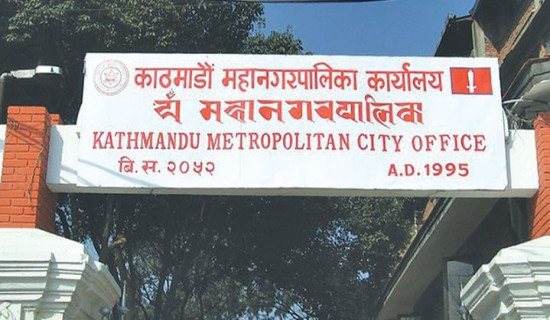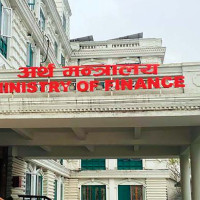- Saturday, 28 February 2026
CNI demands implementation of decade for domestic goods production and consumption
BY A STAFF REPORTER
Kathmandu, May 5: The Confederation of Nepalese Industries (CNI) has proposed to the government to implement the decade of 2022/23 to 2032/33 as the decade of production and consumption of domestic goods.
Presenting suggestions for the upcoming fiscal budget and economic policy for the coming fiscal year 2022/23, the Confederation has suggested the government to formulate the policy in such a way that it can make big changes in high economic growth, investment expansion and employment generation.
Presenting suggestions on behalf of the Confederation, CNI President Vishnu Kumar Agrawal urged the government to address some of the problems in the Nepali economy.
He said that industrialisation, export promotion and import substitution, quality physical infrastructure and project management, balance of payments management and investment growth are the main problems.
Similarly, job creation, policy implementation and good governance and liquidity management are also presented as problems of the economy.
It has suggested focusing on investment, production and export promotion.
The Confederation has also suggested making arrangements for 10 years of policy stability, protection and promotion of domestic goods and fulfillment of mandatory quality standards for all imported goods.
Similarly, the Confederation has suggested maintaining at least two levels of customs difference between industrial raw materials and finished goods.
It has suggested that the process of exit to non-operational industries should be simplified and section 57 of the Income Tax Act should be amended to attract those who are willing to make new investments in the sick industries.
Similarly, among the various types of loans disbursed by banks and financial institutions, a policy should be adopted to reduce the interest rate on loans to the productive sector and to add only 2 per cent premium to the base rate of interest for investing loans in manufacturing sectors.
In order to increase Nepal's export potential by making Nepali products competitive in foreign markets, cash subsidy should be provided on the basis of value added in all exports from Nepal so that foreign currency enters the country.
It has also been suggested that the income limit for personal income tax should be fixed at Rs. 800,000 and Rs. 1,000,000 for singles and couples respectively and the first slab should be fixed at Rs. 300,000 thereafter.
It is suggested to provide reliable electricity to the industry at the same rate as export to increase the domestic production at low cost by making Nepali products competitive and also to make arrangements to return at least Rs. 3 per unit for the cost of electricity consumed in the production of export goods.
The Confederation has suggested implementing automated system for FDI facilitation, to facilitate contract production arrangements, to facilitate investment of non-resident Nepalis, to promote export of goods and services sector, to reserve non-resident Nepalis and remittance senders for primary shares, open investment in portfolio and non-Nepalese to buy apartments.
The Confederation has suggested that the current limit of foreign investment in the field of information technology and innovation should be reduced and that only 1 per cent tax should be charged on the income earned by exporting services including information technology.
In order to attract the youths who have gone for foreign employment in agriculture, income tax exemption should be given for 10 years and a workplace-based skill programme should be implemented for skill development.
The CNI has suggested arranging project collateral loans of up to Rs. 50 million for micro, cottage and small scale industries.
The Confederation has suggested timely management of fertilisers, seeds and technology to reduce imports by increasing the production of agricultural produce.

